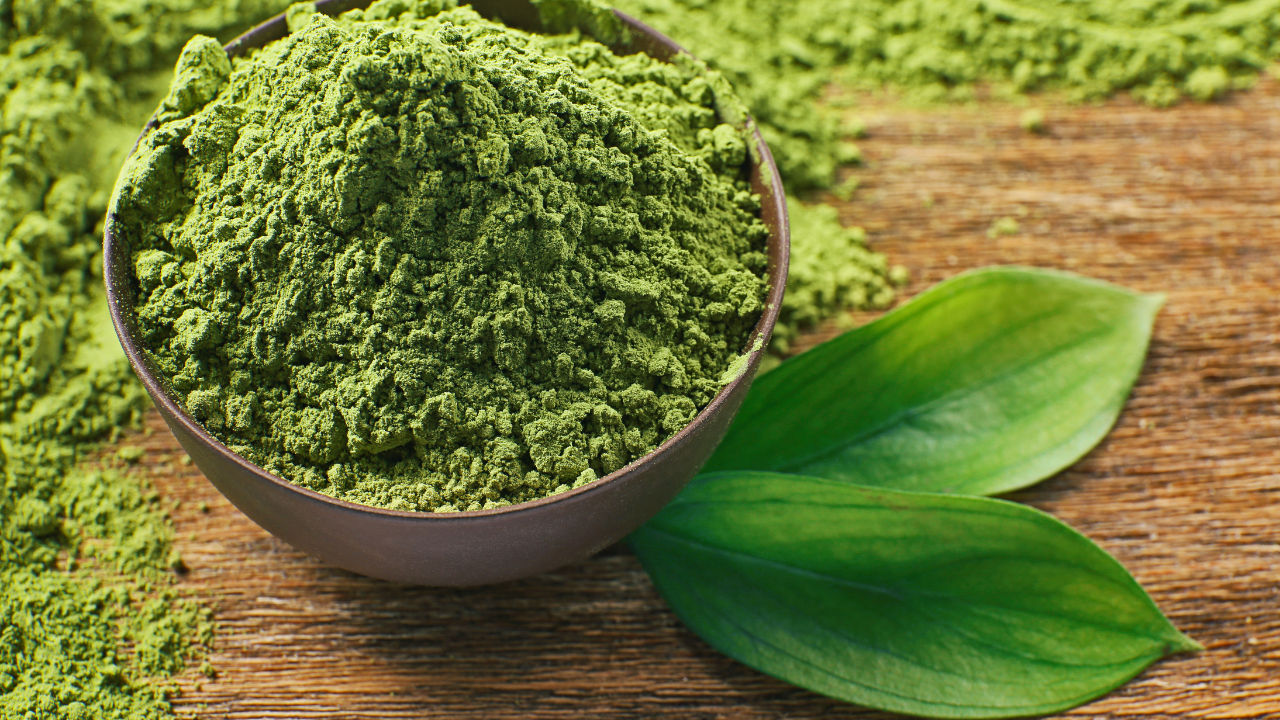3 Popular 'Gut Health Supplements' You Probably Shouldn't Waste Your Money On
Do you feel like there are a million supplements you should be taking for “gut health”? There are a lot of overhyped and inaccurate claims online about health products and their proper use thanks to “influencers” and persuasive marketing!
Let me guess.. You’ve googled one of the following at least once:
“How to reduce bloating”
“Managing IBS”
“Help abdominal cramping”
“Heal my gut”
Thanks to your search history, your social media algorithms KNOW you’re an ideal client for products related to gut-health, so you’ve been a bunch of getting targeted ads on your feed. And you’ve seen a few that sound pretty convincing..
Let’s get into three common ‘gut health supplements’ for today’s post, and discuss whether they are worth the money or not.
The Issue With Supplements
As we delve into this topic, let’s talk about supplements in general for a moment. While, it's a common controversy in the wellness space - the argument that we over prescribe medications in Western healthcare - the same can be said about supplements.
I have had a lot of clients come to me who were taking a slew of supplements they saw online or were recommended by a holistic practitioner, that were not actually helping them to feel any better and finally find relief from symptoms.
Not only can this be extremely defeating, but can also add up in cost really quickly.. I’ve had clients who were spending $300-500 per MONTH on supplements! In a time when we can barely afford groceries, this is not sustainable.
Don’t get me wrong, supplements do have their time and place. They can be used to fill gaps that cannot be obtained from diet, address a specific goal, and/or prevent malnutrition for those with medical conditions or food restrictions. However, as we will get into below, they should not be the basis of your plan when managing a digestive condition such as IBS, GERD or SIBO, but rather used selectively and wisely to complement your dietary and lifestyle habits.
3 Supplements You Probably Shouldn’t Waste Your money On
Here are 3 'gut health supplements' you probably don't need to waste your money on.
1. Greens Powders
First up - Greens powder. Yes, I'm looking at you AG1! Essentially, I would consider these a daily multivitamin, as it contains a wide spectrum of vitamins and minerals.
Some products such as AG1 also contain a prebiotic (inulin) plus probiotics (Bifidobacterium and Lactobacillus which have many important digestive health functions) so they offer some GI support as well. However they may not be right for your goals as those with IBS often have fructan intolerances and ingesting inulin may cause increased bloating and distention. Further, those with SIBO may experience worsened symptoms when taking a probiotic.
A green powder is also an ultra-processed food. It looks nothing like it’s original form, and so like other ultra-processed foods, they should be consumed sparingly. While a greens powder does contain various vitamins and minerals as opposed to other “ultra-processed foods”, it does not replace whole foods and so should be consumed along a varied, nutrient dense diet.
Lastly, the cost of taking a greens powder is not realistic for the average person. With the example of AG1, it is $100 per month for a supply which is outrageous! Again, considering our increased cost of groceries and cost of living, spending this much on a greens powder each month simply doesn’t add up.
For my personal use as well as in practice, I do not recommend greens powders to clients as the cost does not outweigh the benefits and I prefer clients focus on cultivating better habits for a nutrient dense diet. I personally tried out taking it for a month and did not notice any benefits, given I currently had no issues with energy, focus or gut health and have a very nutrient-dense diet, great sleep, and a very active lifestyle.
That said, to each his own and if you have it in your budget then try it out for a couple months and see if you notice any improvements in how you feel (energy, digestive health, exercise recovery, sleep). You can also use it occasionally as a buffer during times you are not able to be as consistent with nutrition habits, such as during illness or travel.
2. Random Probiotics
I can’t tell you the number of times online I’ve seen someone say that taking a probiotic is “the best thing you can do for your gut health”. First off, the research does NOT support this. Research around probiotics for the healthy population is very weak, and only in select cases and populations do probiotics actually provide benefit.
That being said, not all probiotics are created equal, so if you are looking to achieve a certain health benefit such as managing constipation, reducing bloating or preventing traveler’s diarrhea, you have to do your research first. Don’t just go and pull any option off the shelf!
When choosing a probiotic, here is what you need to look for:
Right strain(s) for your condition:
For example:
Saccharomyces Boulardii can help with preventing diarrhea from antibiotic use
Lactobacillus Rhamnosus GG have shown to be beneficial for general gut health and support skin health in those with eczema
Added ingredients:
Check the label for any added ingredients you might be sensitive to such as lactose or prebiotics often added that are high FODMAP (such as inulin, chicory, fructose, sorbitol, fructo- or galactooligosaccharides).
Scientific backing:
We want to ensure the probiotic strain(s) in the product and how they work together (ie. their synergistic effects) have proven benefits evidenced by clinical trials (and even better.. systematic reviews & meta-analyses)
So rather than pull any off the shelf, speak to an expert such as a Registered Dietitian or Gastroenterologist to ensure that a probiotic product is right for your specific goals and needs! Otherwise, picking a random probiotic or one an influencer told you to take online is probably going to be the same as throwing money out the window.
3. Bloat Powders, Teas & Tonics
These products have GREAT marketing, they claim to flatten your tummy and solve all your bloating troubles! While common products, like the Arrae bloat supplements do contain herbs such as ginger, dandelion and peppermint that can help to improve motility and reduce intestinal spasms, they won't solve all your issues.
For starters, let’s define bloating. Bloating refers to a sensation of air/space or an inflated balloon in your abdomen. It can be linked to ‘distention’ which is a noticeable size increase in the girth of your abdomen. Bloating is complex, and often there is more going on under the surface such as dysbiosis, poor diet habits (lack of fiber, water), poor meal hygiene (overeating, rushed/distracted eating), stress, constipation and more. Various culprits can lead to our gut functioning less than optimal, slowed motility (aka movement in our digestive tract), more gas and distention, and yes more bloating.
So if you aren't also addressing those issues, the bloating powders & teas may help with some short term relief when experiencing gas and bloating, but won't solve your problems at the heart of it (as many of them claim to do).
P.S. Want fast relief with your bloating, IBS and SIBO symptoms? Grab my free Guide to Beat the Bloat - your simple steps to start finding relief, plus a few delicious, gut-friendly recipes to inspire you to get started.
How to Use Supplements in Your Personalized Plan
The reality is that supplements should be used to SUPPLEMENT an already solid foundation. While certain supplements DO have their time and place and you may need a certain supplement at certain parts of your journey to help to optimize your management, gut functioning, and symptom relief, they shouldn’t be the basis of your plan.
Further, taking ones not right for your goals and/or with a lack of proper evidence and protocol/dosing can make your situation worse long term.
To find out what supplements and products I do recommend, you may also want to read: My Top 12 Essential For IBS & FODMAP Intolerances
My advice instead of wasting money on supplements first: work with a regulated practitioner (such as a Registered Dietitian) who is going to coach you to make impactful and sustainable habit changes for both your diet and lifestyle that will give you long-term improvements.
Ready to find freedom from your symptoms with a tailored and evidence-based plan for long-term relief? Apply for 1-1 coaching and we will set up a 30-minute free, no obligation clarity call to chat more about your goals and if it is a good fit to work together. Learn more about my coaching program and apply here.
Conclusion
In a world inundated with wellness trends and enticing supplement claims, it's essential to navigate the landscape of gut health products with caution and informed insight. While popular 'gut health supplements' — such as greens powders, random probiotics, and bloat powders, teas, and tonics — often promise us miracle results, most of them do not stand up to scrutiny, leaving many of us investing in products that fail to deliver us results and relief from digestive symptoms.
Supplements should complement a robust foundation of a nutrient dense diet, and seeking guidance from healthcare professionals, such as a Registered Dietitian, ensures a personalized approach that aligns with your specific goals. Instead of chasing overnight fixes, investing in long-term solutions that prioritize holistic well-being and sustainable lifestyle changes is key to finding lasting relief from digestive issues like bloating, irregular bowels and IBS!
Any questions or thoughts about the supplements discussed in this post? Leave a comment below!
Summary:
Caution Shiny Marketing: Despite compelling marketing claims, not all gut health supplements deliver promised results, leading to wasted money and unmet expectations.
Supplement Considerations: Greens powders, random probiotics, and bloat powders, teas, and tonics may offer some benefits, yet they might not comprehensively address digestive issues as marketed.
Choose Wisely: Identifying supplements with the right strains, scientific backing, and absence of potential irritants is crucial. Consulting healthcare professionals helps in selecting suitable supplements tailored to individual needs.
Consider a Holistic Approach: While supplements can supplement a healthy foundation, they should not replace a nutrient-rich diet, lifestyle modifications, and evidence-based practices for optimal gut health and managing conditions like IBS, GERD and SIBO. Prioritizing sustainable habits and seeking guidance from professionals such as a Registered Dietitian is key to long-term relief from digestive issues.











